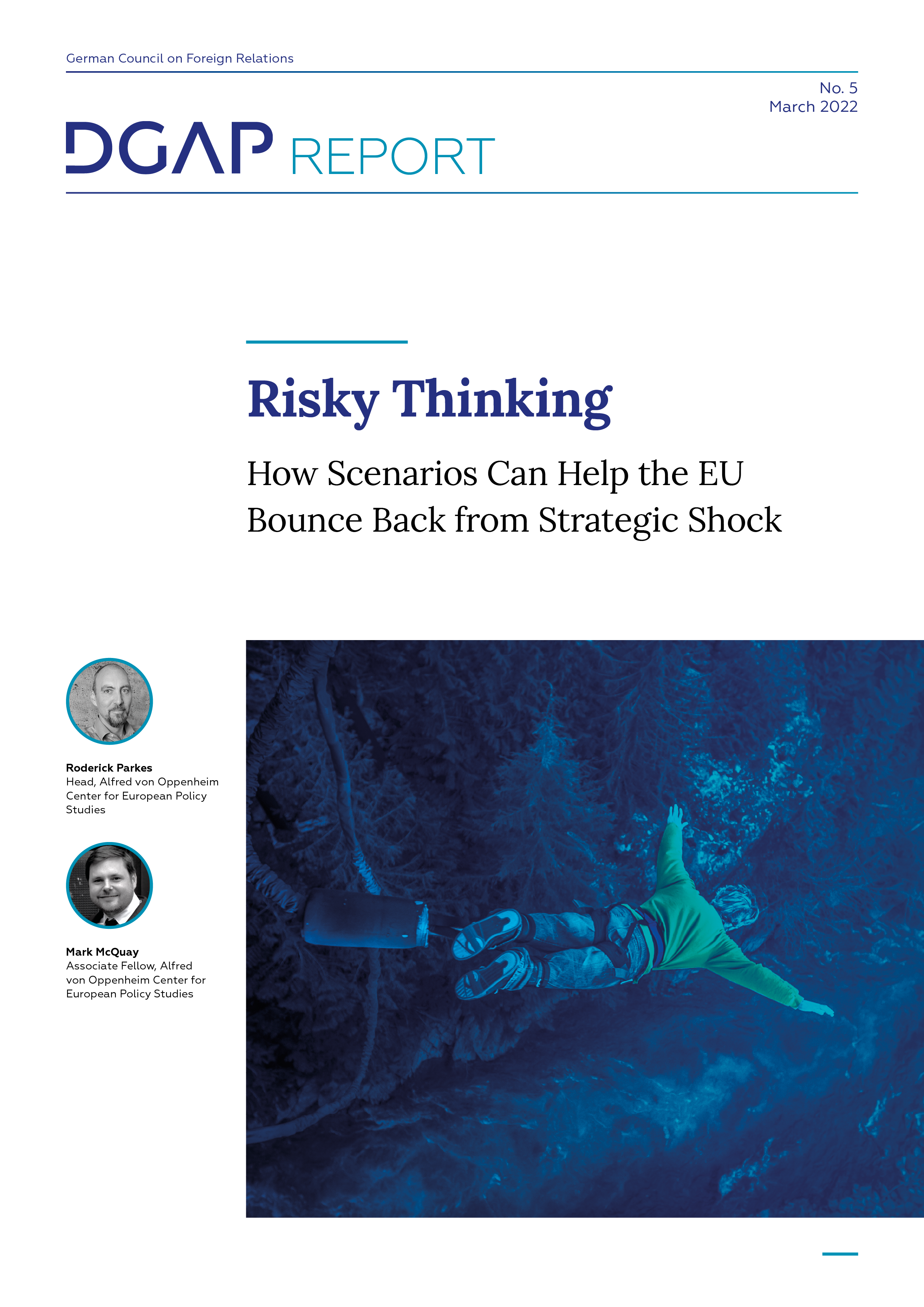Key Takeaways
- A decade of crises has shown how the EU’s global interdependencies can expose it to risk, and policy makers are looking to correct their prior embrace of cross-border connectivity, with France, Germany, and the European Commission pursuing “European strategic autonomy.”
- They are requesting foresight exercises to help rethink such tasks as protecting cross-border critical infrastructure, demanding scenarios in which the EU’s interdependence with foreign countries is a threat to help them work out how to reduce these.
- This case-study shows that scenarios can be a corrective to threat-driven consensus-building: the pursuit of European autonomy risks creating precisely the hostile external environment and internal vulnerabilities that justify it and therefore deserves scrutiny.
Scenarios Matter
After a decade of international crises, European policymakers now routinely consume strategic foresight and in particular illustrative scenarios that anticipate real-world problems. European think tanks and consultancies have in turn made scenario planning part of their core offering, designing imaginative exercises to simulate challenging situations, foretell real-world dilemmas, and help participants think through decision processes before these even arise. But policymakers are generally dissatisfied with the results, and they have added “foresight fatigue” to their list of Covid-related disorders. They complain about spending days in online workshops responding to imagined events which generate few real-world lessons. So what is the problem – and why do they keep calling in think tanks nonetheless?
Our experience shows that good scenario planning for public policy, like strategic foresight more broadly, should comprise three broadly equal disciplines: politics, science and the creative arts. This is hard to achieve. At the EU level, the Commission covers the science (both of the policy field and the scenario methodology) and the Council does the politics. They tend to outsource the creative input to think tanks, and so the most undervalued element falls to outsiders. For their part, think tanks have not always treated this role with rigor, seeing scenario-planning as an excuse for self-indulgent creative writing. Yet the creative discipline, coupled with think tanks’ outsider status, are precisely what is required to correct the other two, to prevent politicians defining the science or – as in the case of Covid – science defining the politics. This paper details a case where think tanks used creative arts to bring discipline to science and politics – and it happens to link into the most important strategic debate of the decade, on European autonomy and the EU’s approach to critical interdependencies with other states.
Read the full policy brief and download the full PDF here.




